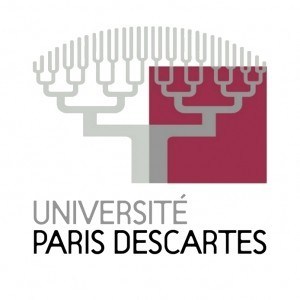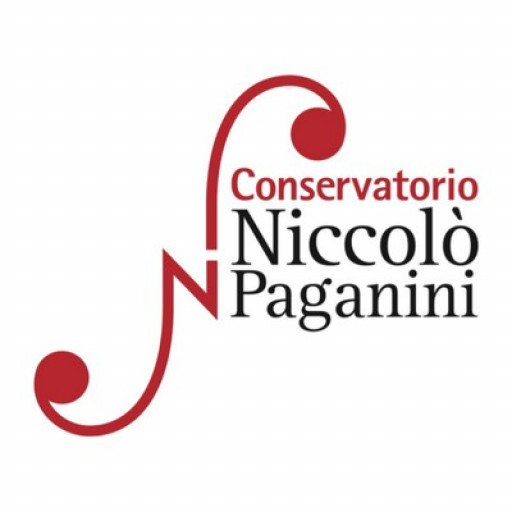Photos of university
Work, Organizational, and Personnel Psychology at Paris Descartes University offers students a comprehensive understanding of the principles and practices that underpin effective human resource management and organizational development. This program is designed to equip students with the theoretical knowledge and practical skills necessary to analyze, develop, and implement strategies that enhance employee well-being, productivity, and organizational success. Through a multidisciplinary approach, students explore topics such as motivation, leadership, team dynamics, organizational culture, and personnel assessment. They also examine the psychological aspects of work environments, including stress management, occupational health, and the development of fair and effective personnel policies. The curriculum integrates both classical theories and current research, fostering critical thinking and evidence-based decision-making. Practical training is emphasized through case studies, internships, and collaborative projects, allowing students to apply their learning in real-world contexts. Graduates of this program are prepared for careers in human resources, organizational consultancy, personnel evaluation, and research in work psychology. The program also provides a solid foundation for those wishing to pursue postgraduate studies or academic careers in organizational psychology. With a strong emphasis on both individual and organizational development, the program aims to produce professionals capable of designing interventions that improve workplaces and contribute to organizational excellence. The faculty comprises experienced researchers and practitioners committed to advancing knowledge and best practices in the field. Students benefit from state-of-the-art facilities, a vibrant academic community, and opportunities for international exchanges. By the end of the program, students will have developed a deep understanding of the psychological factors that influence work behavior, enabling them to make meaningful contributions to the enhancement of work environments and organizational effectiveness worldwide.
Work, Organizational, and Personnel Psychology at Paris Descartes University offers a comprehensive and in-depth curriculum designed to prepare students for advanced careers in the field of Industrial and Organizational Psychology. The program focuses on understanding human behavior in the workplace, applying psychological principles to improve organizational effectiveness, employee well-being, and personnel management. Throughout the course, students explore foundational theories of motivation, leadership, and group dynamics, while also gaining practical skills in employee assessment, talent management, and organizational development. The curriculum emphasizes evidence-based approaches, integrating psychological research with real-world applications to address contemporary issues faced by organizations today.
Students will engage with a variety of topics including psychometrics, occupational health psychology, work-life balance, and diversity management. The program also includes modules on labor legislation, ethical considerations in personnel decisions, and the use of data analytics in human resources. Hands-on experience is integral to the program, with opportunities for internships, projects, and collaborations with industry professionals. This practical approach ensures that graduates are well-equipped to implement strategic solutions in recruitment, training, performance appraisal, and organizational change initiatives.
Faculty members are active researchers and practitioners, providing students with insights from current developments in the field. The program aims to develop not only theoretical understanding but also analytical and communication skills that are vital for leadership roles within organizations. Upon completion, graduates will be prepared for careers as organizational psychologists, HR consultants, talent management specialists, or in related fields such as consultancy, research, or corporate training. The program’s rigorous curriculum and focus on practical skills make it an excellent choice for those interested in shaping effective, healthy, and innovative work environments.
The Work, Organizational, and Personnel Psychology (WOP) master's program at Paris Descartes University is designed to provide students with comprehensive knowledge and practical skills necessary for understanding and analyzing human behavior in organizational settings. The program emphasizes the development of expertise in areas such as personnel selection, training and development, organizational development, leadership, motivation, and work-life balance. Students will study core psychological theories and research methods related to workplace behavior, as well as learn to apply these concepts through case studies, internships, and practical projects. The curriculum generally includes coursework in industrial and organizational psychology, research methodology, psychometrics, human resources management, and consulting techniques. To be eligible for admission to the program, applicants typically need a bachelor's degree in psychology or a related field, along with relevant academic transcripts, a curriculum vitae, and a motivation letter explaining their interest in organizational psychology. Some programs may also require letters of recommendation and an interview. The study language is primarily French, although French language proficiency may be required, and some courses or parts of the program could be offered in English. The duration of the master's program is usually two years, consisting of coursework, research activities, and a master's thesis. Graduates of the WOP program are prepared for careers in various sectors, including human resources, consultancy, organizational development, industrial psychology, and research institutions. They may work as organizational psychologists, HR managers, or consultants supporting organizational change and employee well-being. The program strives to combine theoretical foundations with practical applications to ensure that graduates are well-equipped to address real-world challenges in workplace settings.
The financing of the Work, Organizational, and Personnel Psychology (WOP) program at Paris Descartes University is primarily supported through a combination of public funding, student tuition fees, and potential scholarship opportunities. As a public university in France, Paris Descartes benefits from government funding allocated to higher education institutions, which helps subsidize the operational costs of the faculty, faculty research, and academic resources associated with the program. Tuition fees for master's programs like WOP are generally set according to national regulations and vary depending on the student's residency status, with international students often paying higher fees than domestic students.
In addition to state funding and tuition fees, students may have access to a variety of scholarships, grants, or financial aid programs provided by the French government, the European Union, or private organizations. These financial supports aim to alleviate the economic burden on students and encourage participation from diverse socio-economic backgrounds. The university also offers information on various loan options and financial planning resources to assist students in managing their studies' costs.
Research grants and contracts obtained through faculty and departmental projects also contribute indirectly to the program's financing by funding specific research activities, conferences, and collaborations relevant to Work, Organizational, and Personnel Psychology. Furthermore, some students may be employed part-time within the university or through partnerships with industry, providing additional income while completing their studies.
Overall, the financing structure of the WOP program is designed to ensure accessibility and maintain high academic standards by leveraging public resources, financial aid, and external funding sources. This combined approach allows students to focus on their academic and practical training without excessive financial strain while fostering an environment conducive to research and professional development in organizational psychology.
The Work, Organizational, and Personnel Psychology (WOP) program at Paris Descartes University offers a comprehensive education and training in understanding and analyzing behavior within organizational settings. This program aims to equip students with theoretical knowledge and practical skills necessary to address complex issues related to human behavior in workplaces. The curriculum covers a wide range of topics including personnel selection, employee motivation, leadership, team dynamics, organizational development, and health and well-being at work. Students are also introduced to research methodologies and statistical techniques essential for conducting empirical studies in organizational psychology.
Designed for individuals interested in pursuing careers in human resources, organizational consultancy, or academic research, the program emphasizes the application of psychological principles to enhance organizational effectiveness and employee satisfaction. The interdisciplinary nature of the program allows students to engage with concepts from social psychology, management, and economics, providing a well-rounded perspective on organizational challenges. Through coursework, seminars, and practical internships, students gain valuable experience in applying psychological tools and frameworks to real-world scenarios. The program collaborates with various companies and institutions, offering students opportunities for hands-on learning and professional development.
Graduates of the WOP program are prepared to work in diverse organizational settings, including private corporations, public agencies, consulting firms, and research organizations. They can pursue roles such as human resources specialist, organizational development consultant, talent manager, or researcher in industrial and organizational psychology. The program also encourages academic pursuits, providing a solid foundation for those interested in pursuing a PhD or other advanced research degrees. Overall, the WOP program at Paris Descartes University combines rigorous academic training with practical experience to develop highly skilled professionals capable of influencing organizational policies and practices positively.





